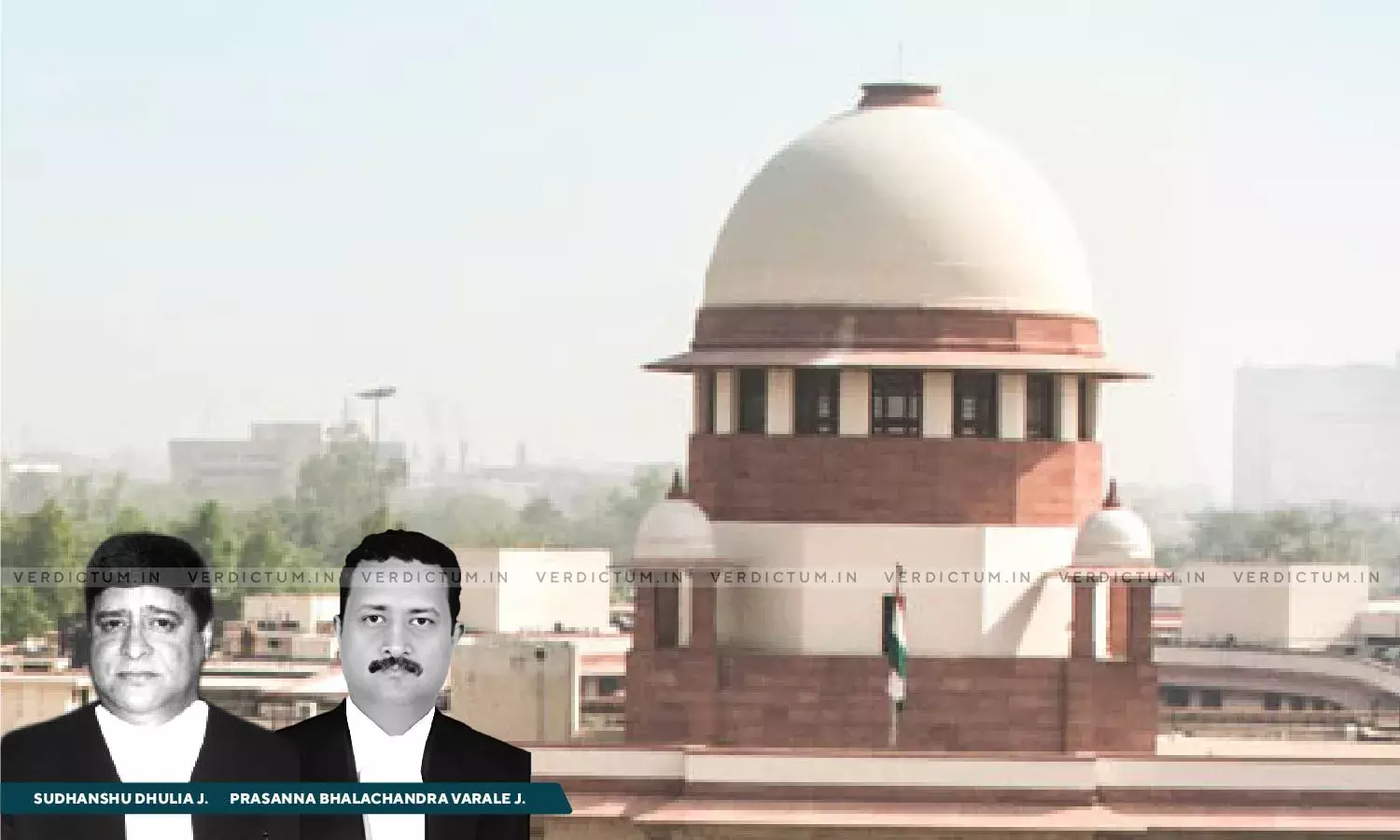Section 482 CrPC| High Court Must Not Hesitate To Quash Criminal Proceedings Which Are Essentially Of A Civil Nature: Supreme Court

The Supreme Court reiterated that a civil dispute which is cloaked as a criminal offence can be quashed by the High Courts by exercising the inherent powers under Section 482 of the CrPC.
The appellants, the managers of a bicycle manufacturing company, had contracted the complainant to assemble bicycles. The complainant filed an FIR due to non-payment, alleging criminal breach of trust and cheating under Sections 406, 420, and 506 of the IPC against the appellants.
The appellants had contended that a full and final settlement had been reached between the parties, wherein an additional amount was paid to the complainant. However, the complainant argued that the settlement was not arrived at by free will. Based on these contentions, the Karnataka High Court refused to accept the dispute between the parties as civil in nature and made out a case of cheating against the appellants.
Justice Sudhanshu Dhulia and Justice Prasanna B. Varale observed, “Merely because the appellants admit that…they have admittedly paid an amount of Rs. 62,01,746/- to the complainant, which is of a much higher number of bicycles, would not prove that the intention of the appellants right from the beginning was to cheat. This amount i.e. the additional amount of Rs. 26 lacs have been paid by the appellants pursuant to a settlement…In this case it seems, it is primarily to bring a quietus to the dispute and to have peace and to avoid litigation.”
Sr. Advocate Aman Lekhi represented the appellants, while Sr. Advocate Anand Sanjay M Nuli appeared for the respondents.
The Supreme Court held that the findings of the High Court were not correct since the dispute between the parties was civil in nature. The Court explained that the complainant was not able to establish the intention to cheat on the part of the appellants.
The Court remarked that the complainant did not deny the fact that a settlement was reached between the parties, however, he claimed that he was coerced into the settlement.
“The allegation that the complainant was coerced into a settlement, looks unlikely for two reasons. First, there is no FIR or Complaint that the complainant was coerced into this settlement. Secondly, this amount was duly accepted by the complainant,” the Court stated.
The Court held that “this is a case where the inherent powers should have been exercised by the High Court under Section 482 of the Criminal Procedure Code as the powers are there to stop the abuse of the process and to secure the ends of justice.”
Accordingly, the Supreme Court allowed the appeal and set aside the order of the High Court.
Cause Title: Naresh Kumar & Anr. v. The State Of Karnataka & Anr. (Neutral Citation: 2024 INSC 196)
Appearance:
Appellants: Sr. Advocate Aman Lekhi; AOR Abhishek Gupta; Advocates Chaitanya Mahajan, Payal Kakra, Ehraaz Zafar and Kunalkakumanu
Respondents: Sr. Advocate Anand Sanjay M Nuli; AOR D. L. Chidananda; Advocates Suraj Kaushik, Agam Sharma, Dharm Singh, Nanda Kumar, Akhila Wali, Shiva Swaroop, Akash Kukreja

